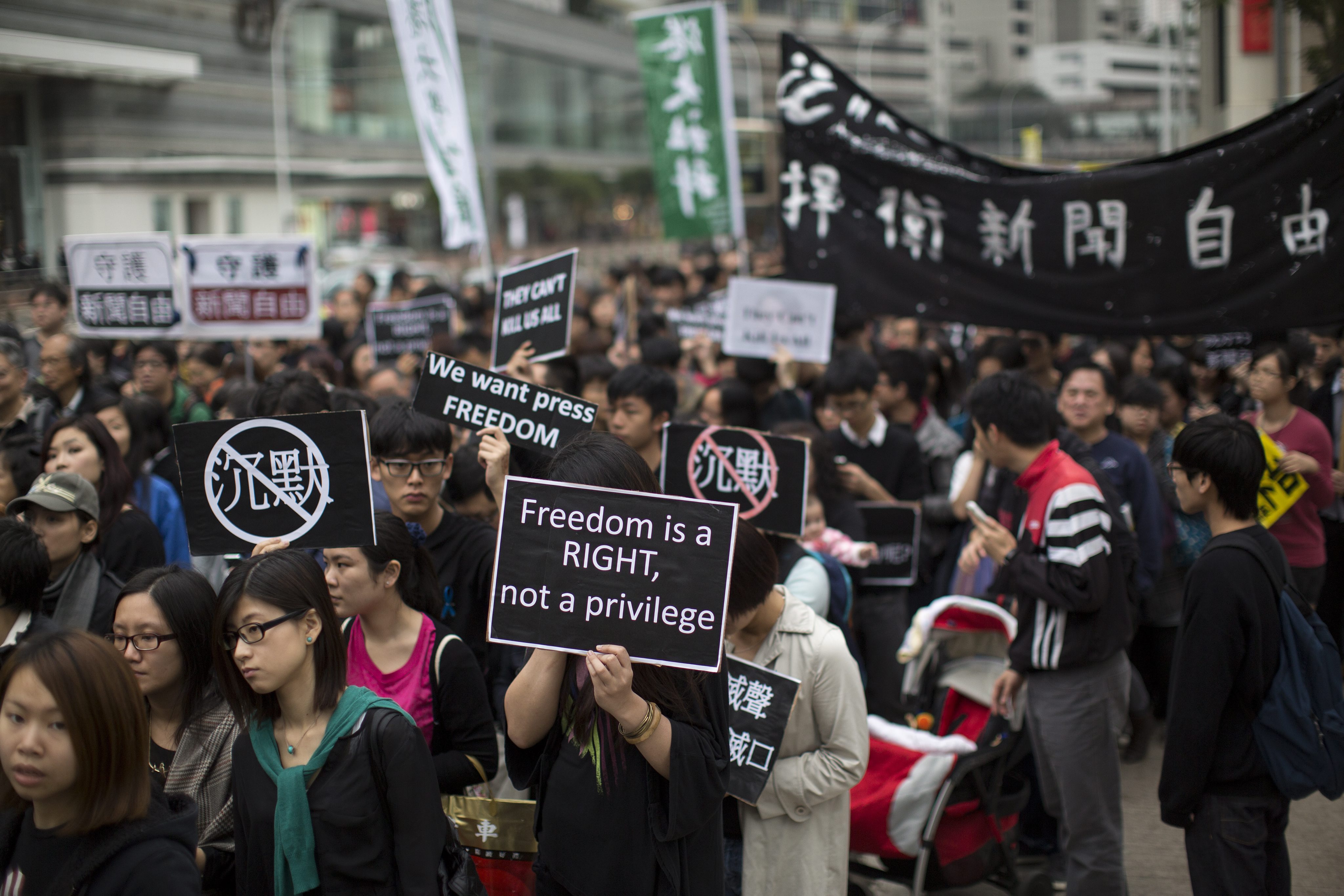The struggle for greater democracy in Hong Kong has entered a new phase. Students and the government are talking about a political solution. What China actually promised the territory is at stake.
“Take a break, for the sake of future room to grow,” veteran protester Bao Tong urged the young demonstrators in Hong Kong, saying that they had already made gains.
“The seeds have already been sown, and they need time to lie fallow,” said the 82-year-old activist, who was once an aide to former Communist Party general secretary Zhao Ziyang.
Zhao was toppled in 1989 when hardliners in Beijing deployed troops against demonstrating students, unleashing the massacre of June 4, 1989.
Bao Tong knows the price to be paid for escalating the conflict and confrontation with the authorities. He spent seven years in prison following the bloodbath in Beijing and continues to live under close guard.
“No great task can be achieved all at once; they all need some time to gestate. There’s no need to keep digging up the seeds to see if they’re still growing every day,” he said in his appeal disseminated by US broadcaster Radio Free Asia, as student leaders negotiated with the Hong Kong government to find a way out of the crisis.
China’s censors are currently blocking news from the Special Administrative Region, jamming satellite reception of news about the protests broadcast by CNN and the BBC and blocking online newspapers.
Bao Tong rejects the version put out by the Communist Party leadership and its official organs to the effect that it is the students that are causing chaos and paralysing Hong Kong.
“That’s wrong. Occupy Central was forced into existence after the legitimate rights of citizens were denied them,” he said.
Bureaucrats who had denied Hong Kong’s seven million people a real political voice were instead to blame for any damage to the economy of the world’s third-largest financial centre, he said.
Bao Tong pointed to the “high degree of autonomy” that ensured freedom of assembly and the press, by contrast with the situation elsewhere in China.
“If ‘one country, two systems,’ becomes ‘one country, one system,’ then Hong Kong’s political and economic system will certainly be damaged, and that thing we fear the most, that damage to and loss of confidence in Hong Kong’s markets will come about,” he said.
Real democracy was not allowed under British rule. The last governor, Chris Patten, launched a vain attempt, abandoning it when the Chinese authorities pledged to allow free democratic elections in the future.
Those promises, made before the handover of sovereignty, are now at stake.
Long before the colony’s return to Chinese rule on July 1, 1997, Lu Ping, China’s chief negotiator, wrote an article in the Communist Party’s official organ, the People’s Daily, published on March 18, 1993.
“How Hong Kong develops its democracy in the future, lies completely in the area of Hong Kong’s autonomy. The Central Government will not interfere,” he said, adding that the procedure for direct general elections merely had to be communicated to Beijing.
There was no need for the Central Government to agree, Lu Ping wrote at the time.
Beijing has since changed tack. The People’s Congress in August decided how the Hong Kong electorate of 5 million would vote.
China’s leaders are to retain control over which candidates are allowed to stand through a hand-picked nomination committee.
A pre-condition is that they “love the fatherland’ – in other words are loyal to the Communist Party. This is all within the law, Beijing argues.
Hong Kong’s Basic Law says in its Article 45: “The ultimate aim is the selection of the Chief Executive by universal suffrage upon nomination by a broadly representative nominating committee in accordance with democratic procedures.”
This is the point in dispute, with the protesters saying that if the nomination is not free and open, the procedure is not democratic.
“No one said Iran was the democratic model that China’s Communist bureaucracy had in mind, with the Chinese government authorized to exercise an effective veto over candidates,” Patten wrote in Friday’s Washington Post.
“No one told the people of Hong Kong when they were assured of universal suffrage that it would not mean being able to choose for whom they could vote.” SAPA






 WhatsApp us
WhatsApp us 

